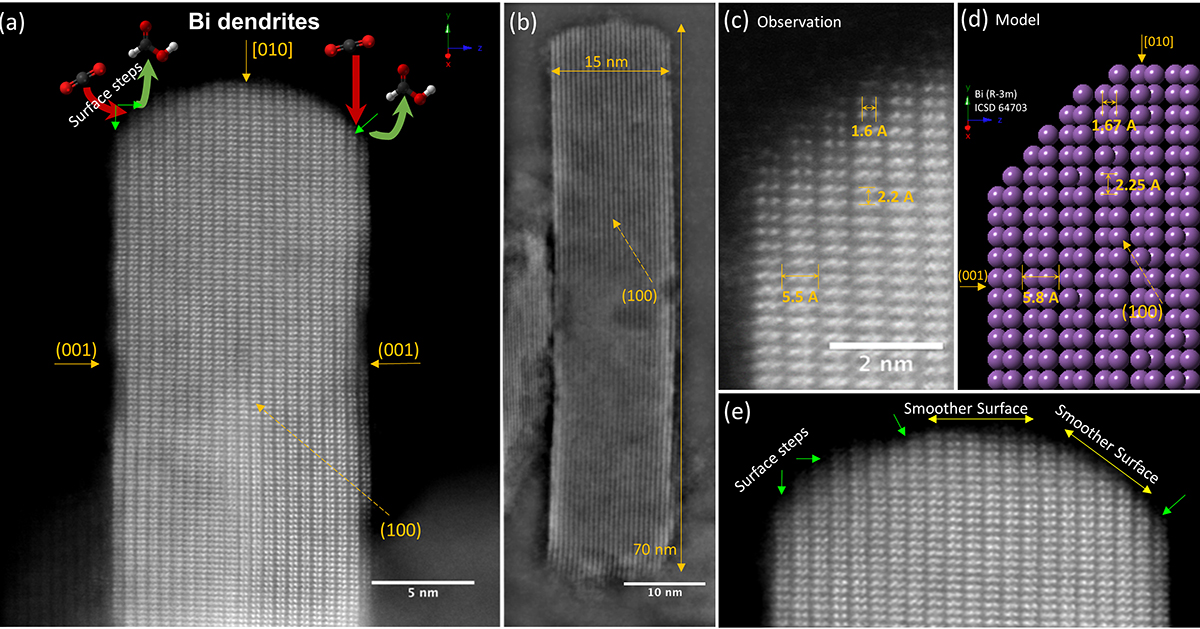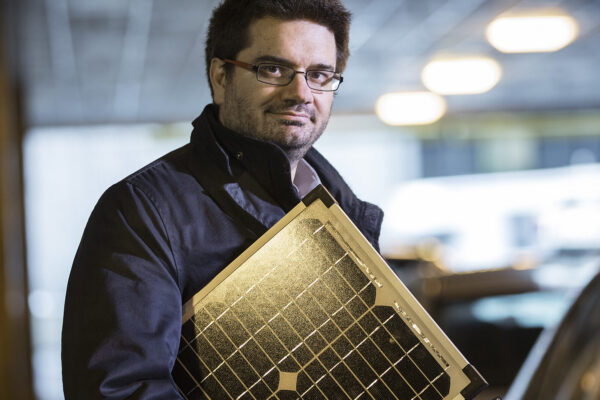- Awards and Distinctions
Doctoral student Mengyang Fan has been awarded the Relève étoile Louis-Berlinguet in November 2020 from the Fonds de recherche du Québec — Nature et technologies (FRQNT).

This award, which recognizes excellence in research, was presented to the doctoral student for her work on the conversion of CO2 to value-added products as a way to mitigate the increase in CO2 emissions due to human activities. “We are looking for a way to convert it into formate, a product that has a high market value, using an electrochemical process. This process is particularly interesting when combined with green energy sources such as hydroelectricity, or intermittent sources such as solar and wind power,” explains the student in the laboratory of Professor Daniel Guay of the Énergie Matériaux Télécommunications Research Centre.
A new non-noble metal-based catalyst
The goal of their research is to develop a non-noble metal-based catalyst, very active for the electrochemical reduction of CO2 and very selective for the formate product. “We have designed porous 3D electrodes based on bismuth nanodendrites with an efficiency for CO2 electro-reduction reaching 98%. Moreover, with these 3D materials, the production rate of the formate is very high, enough to start considering its use in an industrial process,” she says. “Mengyang has done an absolutely remarkable job in showing that we can use the CO2 molecule to store energy and thus convert it into a value-added product,” said Professor Guay.

In the near future, the group will attempt to work more closely with an industrial partner to study how their discoveries can be translated into a technology that will not only help fix CO2 but also generate economic growth.
“I am very pleased to accept this award on my behalf and on behalf of all my colleagues at INRS who support me daily in my research work. I believe that science has a major role to play in reducing the impact of CO2 emissions on the environment, and it is to this task that I want to dedicate my scientific career.”
Her award-winning publication “Uncovering the Nature of Electroactive Sites in Nano Architectured Dendritic Bi for Highly Efficient CO2 Electroreduction to Formate” appeared in October in Science Direct’s Applied Catalysis B: Environmental journal.



